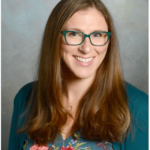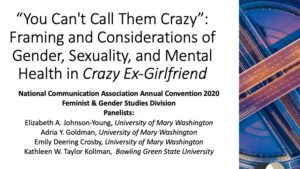
Assistant Professor of Communication Emily Deering Crosby
Assistant Professor of Communication Emily Crosby’s article “Dethroned Victor: The Marginalized Women of Blake Edwards’ Victor/Victoria,” published in the fall 2024 issue of Women & Language, revisits the iconic 1982 film to illuminate how the comedic humiliation of archetypal women characters reinstates patriarchy in seemingly progressive texts. This research paper also explores the anxiety-inducing effects of drag reflected in recent legislation, which disproportionately targets drag queens and trans girls as cultural threats. Learn more.





